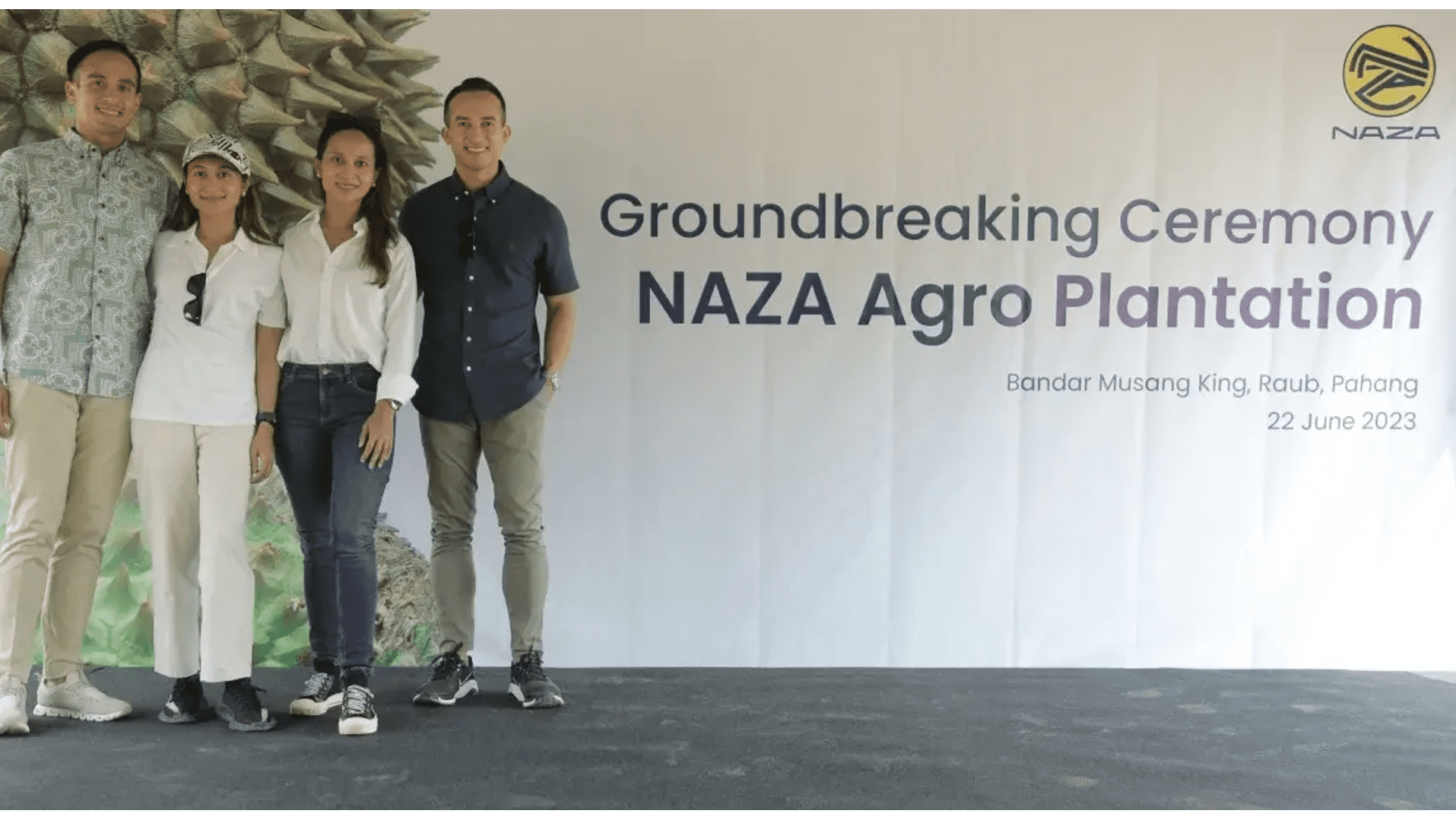NAZA Group unveiled the company's new venture in Musang King durian plantation business via its subsidiary NAZA Agro Plantation in Raub, Pahang. (credit: NAZA Group)
Ease of Business Registration
With the new Companies Act 2016, registering a company in Malaysia is easier and more cost-effective. Not only is the registration process more convenient, but there are also other changes that apply to companies in Malaysia. Some of the changes that we have seen under the new Companies Act 2016 are:
(i) Incorporating a company with only 1 shareholder and 1 director (for a Sdn Bhd or Pte Ltd company);
(ii) Audit exemption for dormant companies, zero-revenue companies and threshold qualified companies;
(iii) No Annual General Meeting (AGM) for private companies;
(iv) Easier passing off written resolutions for private companies.
Business registration and company formation can also be done within 2-5 working days in Malaysia. We may fell a bit short behind Singapore in this aspect, where in Singapore, company formation can be done within 1 day, but it is still decently fast to form a corporation in Malaysia, taking into accounts the size of population of Malaysia and the numbers of company formation that takes place everyday in Malaysia.
Low Corporate Taxes
Malaysia’s corporate tax rate is lower than most other countries in Asia, where mostly the tax rate is at 24%. However, if a company is resident, and fulfill the requirements such as (i) paid-up capital less than RM2.5 million, and income of less than RM50 million, (ii) does not own other companies with paid-up capital of more than RM2.5 million, and (iii) it is not controlled by another company which has paid-up capital of more than RM2.5 million, then the corporate tax rate is at a low rate of 17%. In this aspect, Malaysia ranked average within the ASEAN countries, where Singapore offers the lowest corporate tax rate at 17%, while Philippines has the highest corporate tax rate at 30%.
There are also some tax exemptions and incentives offers by Malaysia to business owners. For example, Pioneer Status in Malaysia is a form of tax exemption (up to 70% of statutory income) that is granted to companies participating in promoted activities or producing promoted products for a period of 5 to 10 years. Another incentive is the Investment Tax Allowance, which is granted based on the capital expenditure incurred on acquiring industrial buildings or plant and machinery for the purpose of the above activities and products.
Educated Labor
Malaysia has a fairly large population of 33 million, where it does translate to the size of workforce available in Malaysia. Most of the workers in Malaysia are highly educated as the government supports the development of human resource in every sector. Malaysia puts a lot of importance on education and training, and there has been an increase in the number of public training institutions such as technical schools, polytechnics, industrial training institutes and skill development centers to meet the growing demand and qualifications of the industry.
The workforce has all the required skills to operate a business correctly and are also some of the most productive people. Its legal practices are also based on the British system, giving companies excellent protection.
In term of minimum wages for the workforce, upon the implementation of the new amendments of the Employment Act 1955 in January 2023, the new minimum wage for Malaysia is RM1,500 per month. This is still lower than the minimum wages in Singapore at SGD1,750 per month. However, it is still higher than other ASEAN countries, such as Thailand and Indonesia.
Free Trade Agreements
Malaysia has entered several free trade agreements, such as Malaysia-Japan Economic Partnership Agreement (MJEPA), Malaysia-New Zealand Free Trade Agreement (MNZFTA), Malaysia-Australia Free Trade Agreement (MAFTA) and Malaysia-Turkey Free Trade Agreement (MTFTA). Malaysia is also part of the ASEAN Free Trade Agreement (AFTA). The benefits of these agreements are: (i) Lower of offers zero tariff on import and export goods under the FTA; (ii) Removes and modifies import restrictions; (iii) Allows easier entry for investors; (iv) Less complicated customs procedures; and (v) Improves the market access for different services. Apart from the above aspects, there are a few other notable aspects that should be considered in doing business in Malaysia too, in which I believe that it has the same importance, relevance and also weight for us to decide to do business in Malaysia.
Ease of Doing Business
Malaysia ranked 12th place in the World Bank’s Ease of Doing Business report in 2020. Malaysia has been increasingly developing to make establishing businesses for residents and non-residents easier. Between ASEAN countries, Malaysia placed at 2nd, after Singapore, which ranked at 2 nd place in the World Bank’s Ease of Doing Business, after New Zealand which in the 1 st place.
No Language Barrier
Malaysia is a multilingual country. The official language of Malaysia is Bahasa Malaysia or Malay, but other common languages are English, Mandarin and Tamil. Many Malaysians are also well verse in Arabic language. Most Malaysians, especially the younger generation, are able to speak several languages fluently.
Strategic Location
Malaysia is located in the Asia Pacific rim and in the heart of the ASEAN Community, which consists of Brunei, Cambodia, Indonesia, Laos, Myanmar, Philippines, Singapore, Thailand and Vietnam. Malaysia’s strategic location is the gateway to a huge ASEAN population of 667.3 million people. Malaysia is also ideal for sea route trading businesses as Malaysia is home to four seaports which are Port Klang, Johor Port, Port of Tanjung Pelepas, Kuantan Port, Penang Port, Bintulu Port and Kemaman Port.
Conclusion
As a business owner myself, I have experienced and have my fair share in the industry, and able to capitalise the opportunity given by the Malaysian government for the business owners. Malaysia is not perfect, but no other country nonetheless. However, Malaysia do has a lot to offer to business owners, be it resident or foreigner who intend to expand their business and to explore the Malaysian market.
I believe that the business landscape in Malaysia is thriving moving forward. From a legal point of view, Malaysia do offers great flexibility to the business owners, to ensure that your business flourish, as compares to other ASEAN countries.
The views are exclusively writer's own and do not necessarily represent the views of GC.
Source
www.pwc.com/my/en/assets/publications/2022/pwc-my-doing-business-in-malaysia-2022
www.pwc.com/my/en1publications/mtb/tax-incentives.html
www.malaysia.acclime.com




